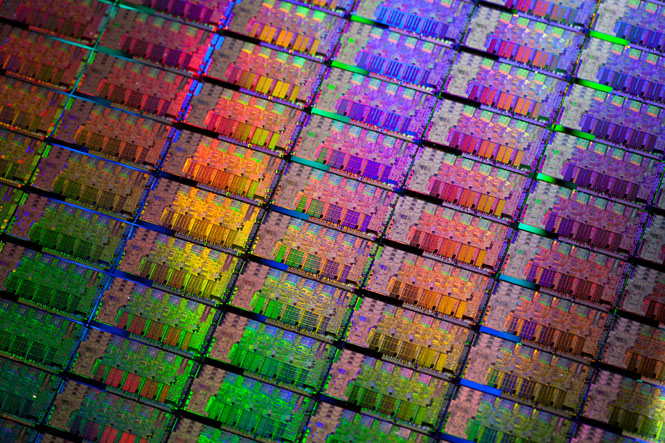
Both Intel’s Kaby Lake and AMD’s upcoming Zen are chips built on the 14-nanometer node. How they stack up to one another in practice remains to be seen, as Kaby Lake processors are still rolling out and Zen has yet to hit store shelves. But they’re built on the same node size, which ultimately means they’re like fighters in the same weight class.
One could easily outperform the other, but they’re coming into the fight on fairly even ground.
AMD has been in business with GlobalFoundries since 2009, but their most recent agreement has been retooled in a couple interesting ways. First up, it’s not just another annual agreement between the two companies, as they’ve had in the past. AMD’s revamped agreement with GlobalFoundries is a long-term, five-year agreement to order a certain number of wafers each year.
The long-term partnership between the two companies is particularly interesting because GlobalFoundries is skipping the upcoming 10nm node, and going straight for the hotly anticipated 7nm node.
If AMD’s next-gen processors are coming from GlobalFoundries, that means they’re probably going to be on the 7-nanometer node, not the 10nm node which Intel will be using – Intel has heavily invested in the 10nm node, so it’s unlikely they’d skip it entirely.
What does all this mean for your PC? Well, it means that in a few years AMD might have have a slight edge over Intel, with processors that could do a lot more with a lot less. A chip built on the 10nm node could be at a serious disadvantage against a similar processor built on a 7nm node.
Naturally, AMD’s upcoming processor, the Zen+, is more than likely going to remain a 14nm chip. This revamped agreement with GlobalFoundries won’t bear fruit for a while, but it’s definitely an interesting move that could very well change the game for AMD and Intel.
Editors' Recommendations
- Nice try, Intel, but AMD 3D V-Cache chips still win
- AMD vs. Intel: the rivalry has never been more fierce
- Intel just made a huge comeback, and it’s bad news for AMD
- AMD’s upcoming Ryzen 5 5600X3D could completely dethrone Intel in budget builds
- AMD Ryzen 9 7950X3D vs. Intel Core i9-13900K: only one choice for PC gamers



